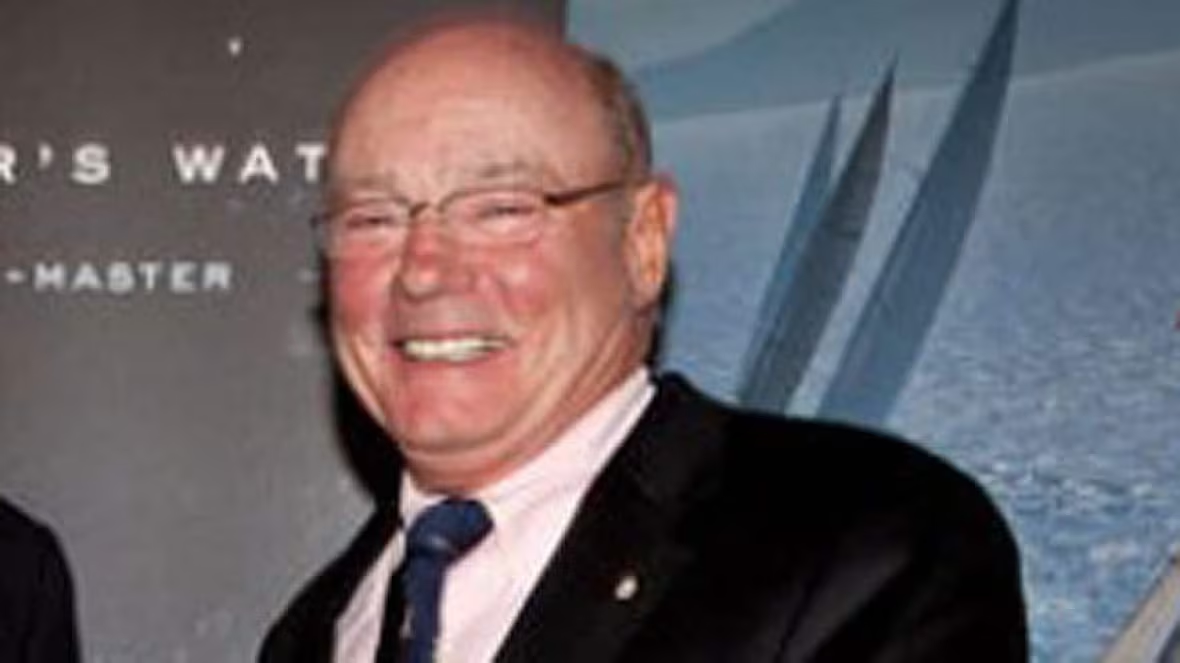Dennis Oland pleads not guilty to 2nd-degree murder
Officially arraigned in 2011 death of father, Richard Oland, in front of 1,131 prospective jurors
Dennis Oland has officially pleaded not guilty of second-degree murder in the 2011 death of his father, prominent businessman Richard Oland.

Standing on the floor of Saint John's largest sports arena, as his wife, mother and more than 1,000 prospective jurors looked on, Oland leaned over the mic and said in a clear, slow voice over the PA system: "Not guilty."
A total of 1,131 prospective jurors showed up by 9 a.m., went through a security check and were registered throughout the morning. There is a publication ban on any information that would identify them.
They were divided into eight groups of 142 people throughout the afternoon and evening — a lengthy and tedious process.
Each person was assigned a number, which was put into a box. Justice staff then drew numbers at random and called them aloud.

Group A, for example, is scheduled for Wednesday at 9 a.m. Everyone was also given a toll-free number to call before they go to court to ensure their assigned day and time hasn't changed and that the jury hasn't already been selected.
If they don't show up, they could be held in contempt of court and face a fine of $1,000.
Two "triers" were also expected to be selected Tuesday night. They do not sit on the jury, but rather help the court select the 12-member panel and two alternates.
Patience appreciated
Justice John Walsh, of the Court of Queen's Bench, who has been brought in from Miramichi to hear the case, thanked the jury pool for their patience.

But the process can't be rushed, he stressed.
"This is a very serious business," said Walsh, referring to the right to be tried by a jury of peers as the foundation of the justice system.
"This is one of the prices we pay for the right to live freely under the rule of law."
And while the prospective jurors may not like the week-long process, the alternative — sitting straight through until 12 jurors and two alternates were selected — would have been worse, Walsh suggested.
"You have no idea how much work has gone into this to ensure this goes as smoothly as possible, given the enormous number we're dealing with," he said.
It is one of the largest jury pools — if not the largest — in New Brunswick history. A total of 5,000 people were sent summonses, but about 4,000 were previously excused by the head sheriff.
The Oland jury pool is even larger than that of some of the most high-profile cases across Canada, including Luka Magnotta, which was 1,600, and Robert Pickton, which was 3,500.
The Oland family is well-known in the Maritimes. It owns Moosehead Breweries Limited, the oldest independently owned brewery in Canada. Richard Oland left the company in the 1980s, but was an accomplished businessman and active member of the Saint John community.
His body was discovered in his investment firm office, in the city's uptown, on July 7, 2011.
Dennis Oland, his only son, was charged more than two years later and has been living in the community under conditions.
Serving on jury a 'valuable experience'
The judge also warned the prospective jurors that if they are ultimately selected as one of the jurors, or alternates, they will be further inconvenienced.
The trial, which is scheduled to start on Sept. 16, is expected to last 65 days.
"We do our best to be accurate in our estimates, but in the end, they are estimates," said Walsh, noting it could take more or less time, depending on a variety of factors, such as the availability of witnesses and the duration of cross-examination.
Still, it will be a "long trial," he said, noting that court typically sits Monday through Friday, from 9:30 a.m. until 4:30 p.m.
"We are sensitive to the impact on each of you," he said, adding there may be an occasional Friday off, time permitting.
But many people find serving as a juror and having a "direct part in the administration of justice in their community" a "valuable experience," the judge said.
Open-mindedness key
The prospective jurors will have an opportunity to offer reasons they should be excused later in the week and will face questions from the lawyers.
Walsh says the most important thing is that jurors be impartial, approach the trial with an open mind and decide the case based on the evidence presented and his instructions.
Anyone who is related to or closely associated with anyone involved in the case, including possible witnesses, may not be able to do that, despite their best efforts, he said.
Anyone who has personal knowledge of the case, aside from media reports, might also be disqualified, he said.